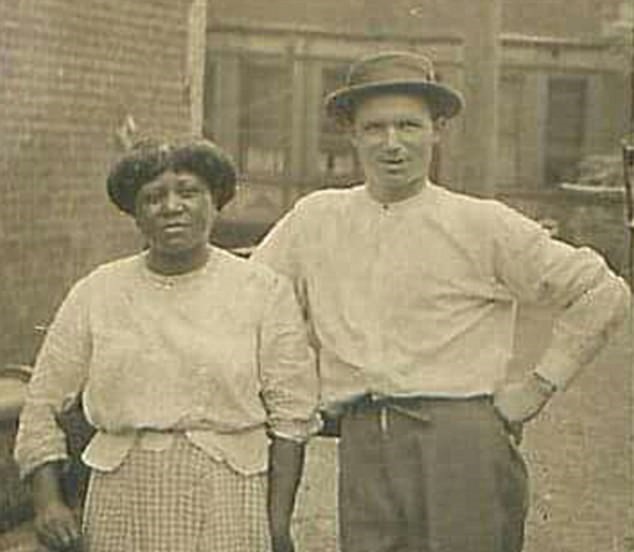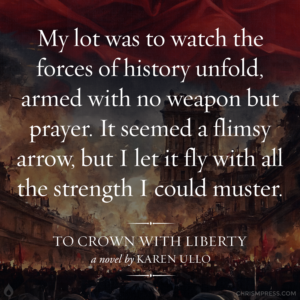The Warble
The Official Blog of Karen Ullo

Audiobook Release Day!
To Crown with Liberty, voted the #1 overall book of 2024 by the readers of Catholic Reads, is now live on all major audio platforms including Audible, Libby, Spotify, and more. It’s narrated by the lovely and talented Tiffany Morgan. Download and enjoy!

Two Awards from Catholic Reads!
In the past week, Catholic Reads released their annual Editor’s Choice Awards, which are given in each genre, and a new addition this year, Reader’s Choice Awards, which are voted on by their newsletter subscribers. To Crown with Liberty took home BOTH the Editor’s Choice Award for Historical Fiction and First Place in the Reader’s Choice Awards!
I’m so incredibly honored to see how much both professional reviewers and ordinary readers are enjoying the book. Thank you, Catholic Reads, and thank you to every single person who voted in the awards. Your support means the world to me.

Is To Crown with Liberty Based on my Family?

To Crown with Liberty is Finally Here!
Finally–FINALLY!–the day is here! To Crown with Liberty is available to the world from Chrism Press, WhiteFire Publishing, or your favorite online retailer.
Want to read it for free? One of the very best things you can do to help your favorite authors is to request their books through your local library. Nearly every public library system in the US has an online request form for patrons. All you have to do is login with your library card and ask. If they want any information that you’re not sure about, just email me, karenulloauthor [at] gmail.com, and I’m happy to help. And I bet your other favorite authors would say the same.
ABOUT THE BOOK:
New Orleans, 1795. In the wake of the French Revolution’s Reign of Terror, Alix de Morainville Carpentier—a former lady-in-waiting to Marie Antoinette, now married to her gardener—seeks peace and security in the Spanish colony of Louisiana. But her journey into the man-eating swamp called Attakapas reopens the wounds of her old life in France. Alix is forced to reckon with the choices that saved her life at the cost of her honor—and perhaps her soul.
In revolutionary France, the Old World is dying; the quest for liberty, equality, and fraternity has become a nightmare where the price of dissent is blood. In the wilderness of Spanish Louisiana, a new civilization is beginning to emerge—but in this budding New World, the slave trade perpetuates the systems of oppression that sparked the revolution. Caught between old and new, scarred by trauma and grief, will Alix ever find a home where she can truly be free?
To Crown with Liberty is a historical novel based on riveting legends from George Washington Cable’s Strange True Stories of Louisiana (1888).

Please join me TODAY at 1:00 pm Central on my Facebook page for a live event celebrating To Crown with Liberty. I will read an excerpt from the book, complete with silly French Revolution props, and I’ll give away a signed copy to one lucky attendee. Please come join the fun!


Recent Comments